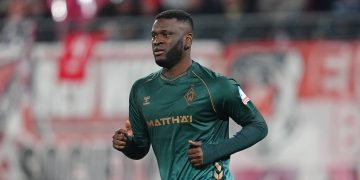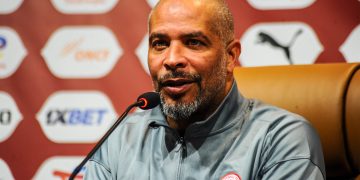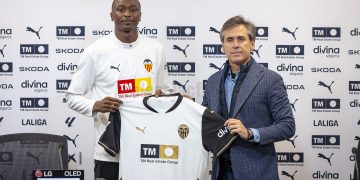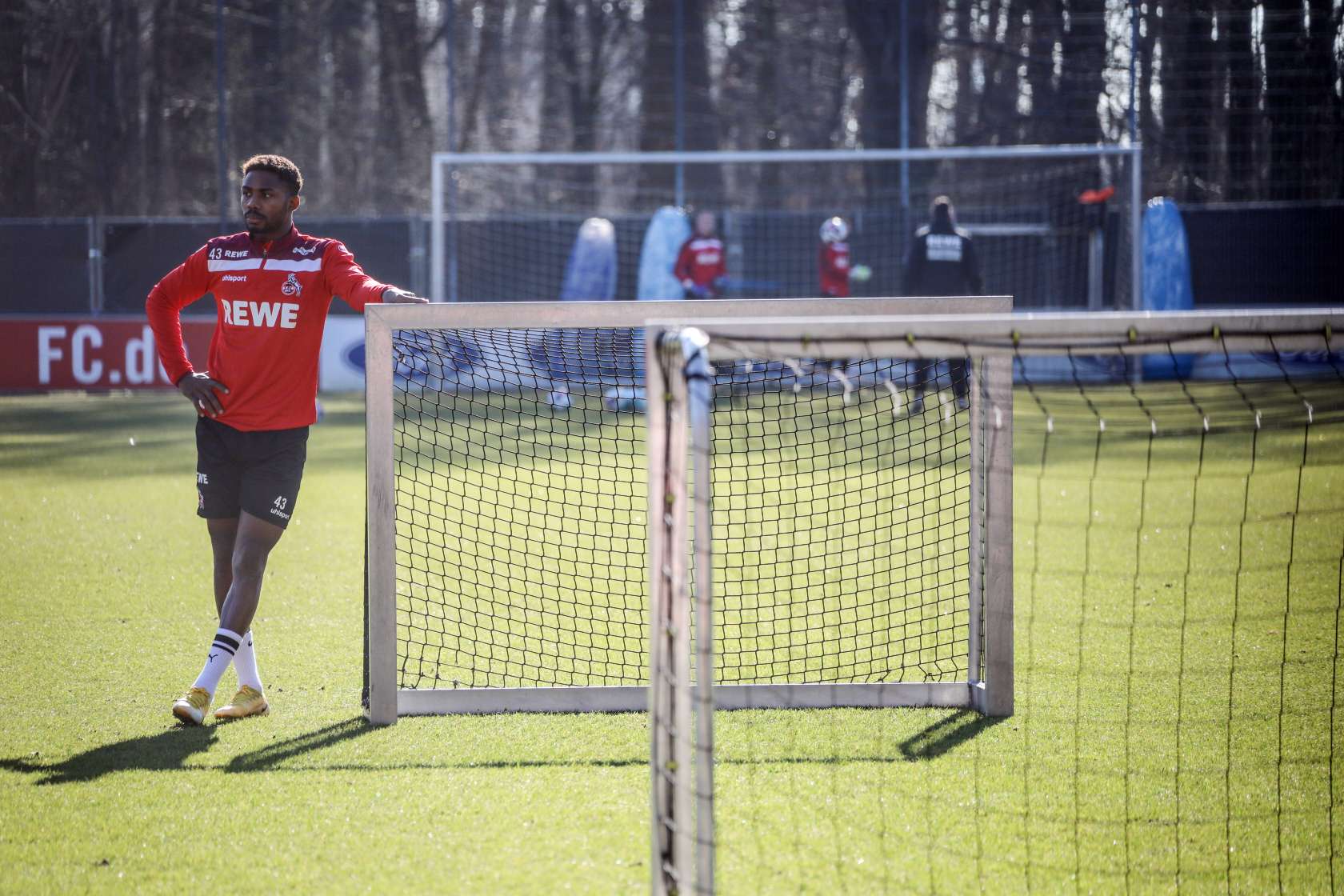For four games under Austin Eguavoen, the Super Eagles have played from the wings. It’s now a system dubbed inflexible by many fans and the coach may be guilty of the same problems Nigeria encountered with Gernot Rohr – rigidity and inflexibility.
The Super Eagles have some of the most diversely gifted players in Africa at the moment, especially in attack. These are players who fit into different systems at their respective clubs and can hold their own when the deployment is good.
While it may be too late to seek strange tweaks by the coaching crew, the many strengths of the available players must be keyed into.
Against Ghana, Nigeria once again played with a 4-3-3 formation, which seemed all evening like a 4-2-4 with Iheanacho not helping the midfield enough in pressuring positions.
In the creative areas behind the attack, the space left by the Ghanaians on occasion meant he had some yards to operate with but he didn’t get enough service from the central midfield.
This affected the gameplay of the wingers who hardly got fed, and in the few moments they were, couldn’t make it count.
Nigeria was sapped off its best goalscoring threat, Victor Osimhen as a result of this. The Napoli attacker struggled all evening, battling the duo of Alexander Djiku and Daniel Amartey all alone as they doubled on him. This meant he lost possession eleven times in the game and was able to have just a shot on target in 90 minutes.
The Ghanaians were compact on the night but left enough holes for Nigeria to punch through. This wasn’t seen until the introduction of Oghenekaro Etebo brought a semblance of calmness to the midfield. The closest Nigeria came to a win in the game was when a penalty was chalked off by the VAR and it took Etebo’s grit and ruggedness and Iheanacho’s support, albeit, adjudged to be a foul, to draw that penalty. On luckier days, that may have stood.
Another good opportunity fell to the Super Eagles when Frank Onyeka sold a dummy to two Ghanaian defenders. His final decision let him down on that occasion. Nigeria improved on the night when there was enough push from the central midfield areas to the attack, and that should be instructive to Eguavoen.
Against Ghana, Eguavoen deployed the same system as seen at the AFCON with a like-for-like replacement for Ndidi, especially, the most baffling decision.
It was a system against an opposition that will always cancel the team out in that regard. Without Ndidi, the Super Eagles had a reduced chance of competing favourably against Ghana in the middle and they hardly did all game. Bonke, for all his great energy and ruggedness, is very limited in creative areas of the game.
On Tuesday, Eguavoen should look to use the many weapons in his Arsenal to strength and stretch his creative imagination.
A Three-Man Defence, Two-Pronged Attack
On Friday, William Troost-Ekong was caught flat on some occasions but dealt with the Ghanaian threats when called upon. In many moments, it also took the intervention of Leon Balogun to read the danger behind him and cause nuisance for the very pacy Ghanaian attackers.
With Kenneth Omeruo joining the defence and providing an extra option, there will be enough spaces to cover against the direct Ghanaian attack. The presence of a Libero at the back will also help read any danger floating from the opposite end. Besides, Nigeria has looked the least defensively suspect when playing a 3-man defence.
Ola Aina at the moment is arguably the best defender in the team and he continued from where he stopped at the AFCON on Friday. His attacking bust and intelligent positioning and passing helped fashion a good situation for Joe Aribo who failed to connect with an attacker or hit target. Aina can be a disruptive influence to the Ghanaian defence and with the assurance of good cover behind him, he can offer a real attacking threat.
The former Chelsea defender can always go back and play as part of 5 defenders when the team is on the back foot.
On the other side, Zaidu Sanusi is expected to start for the team and can be an attacking threat on his day with a license to attack. He however must return at an equal pace.
The duo of Etebo and Onyeka are tipped to start against Ghana with Aribo playing as the arrowhead of a midfield three. Nigerian fans are of the opinion that the creative influence of the Rangers midfielder is subdued in the Super Eagles.
The desire to make early runs and score from blind spots, shown in his first few games for Nigeria has been missing for a while and as shown in the first leg, he could still be an attacking threat with the runs.
Nigeria may play with a two-pronged attack of Osimhen and Odion Ighalo with both attackers expected to keep the Ghanaian central defensive pairing busy and creating enough space for Aribo and others to charge into. Ighalo, used to the physical nature of football on the continent can also do great work for Osimhen by being a nuisance to the defenders.

How can Emmanuel Dennis come in?
Alternatively, the Super Eagles can also employ Dennis as an inverted right winger, manned to take the half spaces the Ghanaians will leave when the central attackers keep them busy.
He's an intelligent footballer and one that can cause problems when he has the space. Feelers from camp also say he's unfazed by the situation, which is a positive.

This may see the Nigerian defense being the usual 4-man while Dennis and Ighalo or Sadiq take positions in a 4-2-2-2.
Dennis will play as a sole winger in the system, slightly behind a two-pronged attack of Ighalo/Sadiq and Osimhen. With Aribo slightly behind, both players can be the decider on the day.
Eguavoen and members of his coaching crew must try as many systems as possible as this is where the true separation and ability to hold it down is known. Best of luck.
Probable systems and players;
3-5-2: Uzoho, Omeruo/Semi Ajayi, Troost-Ekong, Balogun; Sanusi, Aina, Etebo, Onyeka, Aribo; Ighalo/ Sadiq, Victor Osimhen
4-2-2-2: Uzoho, Aina, Ekong, Balogun, Sanusi; Etebo, Onyeka; Aribo, Dennis; Ighalo, Osimhen






Nice opinion, how I wish Equaveon will read and take this opinion.